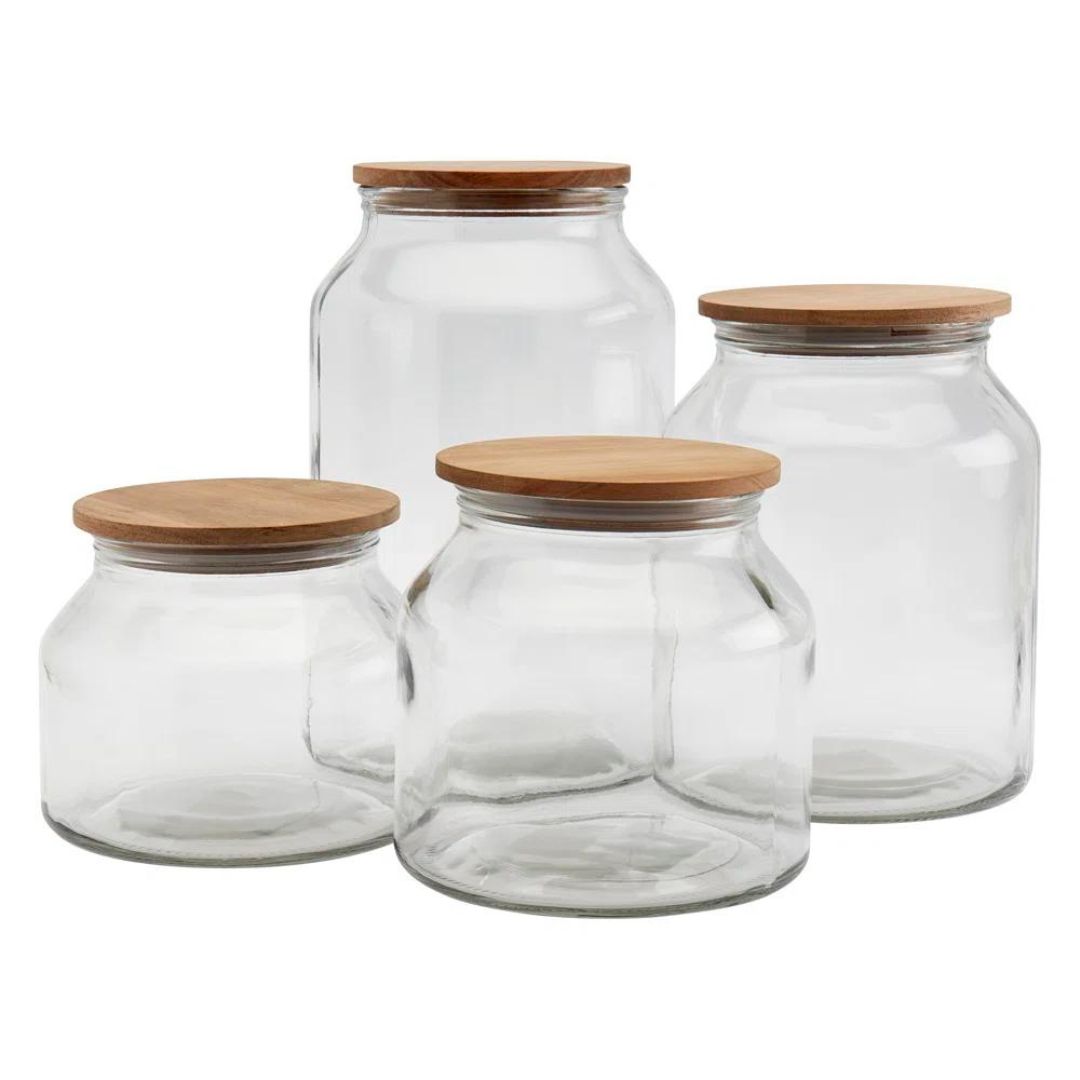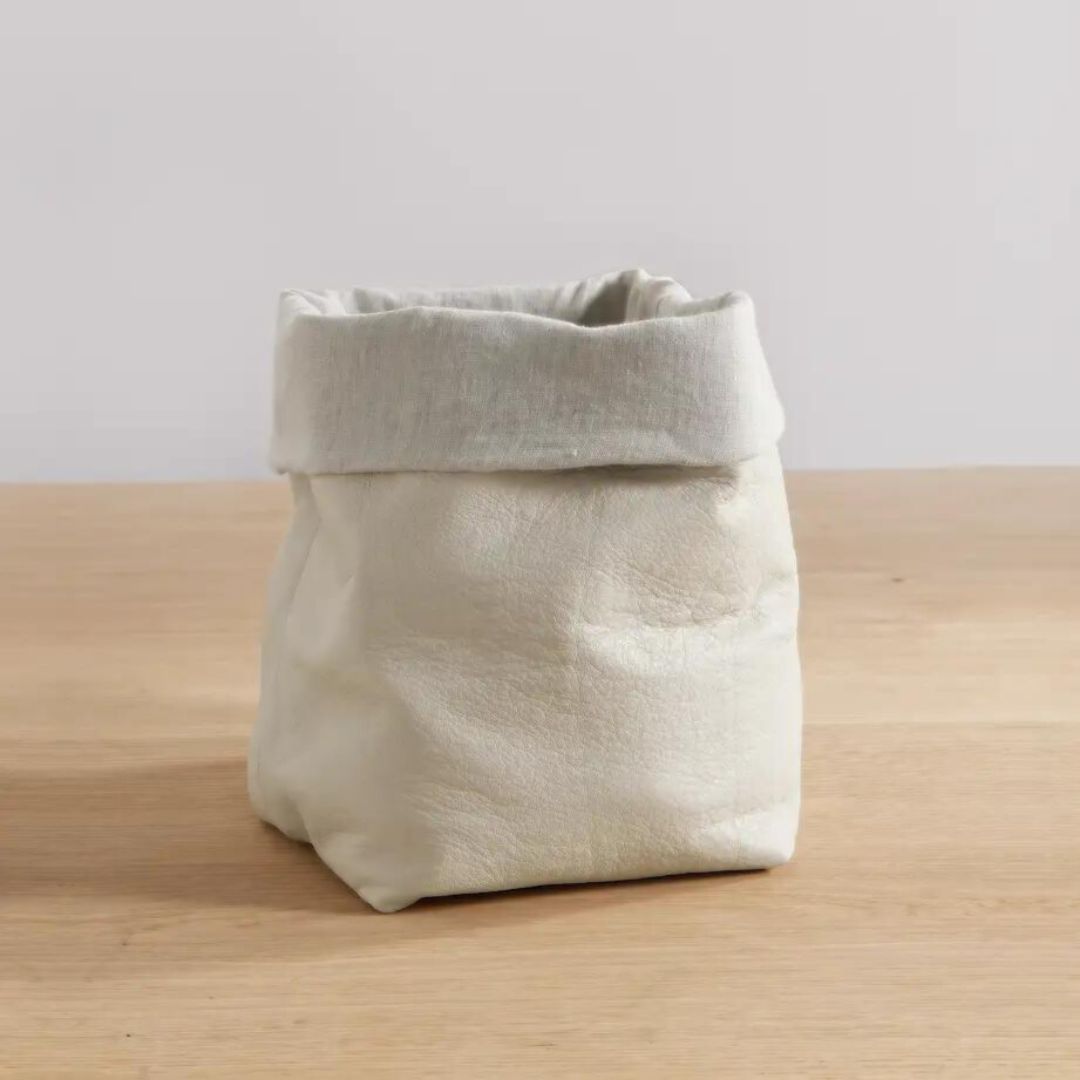5 approaches to organizing a cottagecore kitchen – a masterclass from professional organizers
Nothing disrupts a beautiful kitchen more than mismatched storage solutions – this is how to nail the cottagecore look
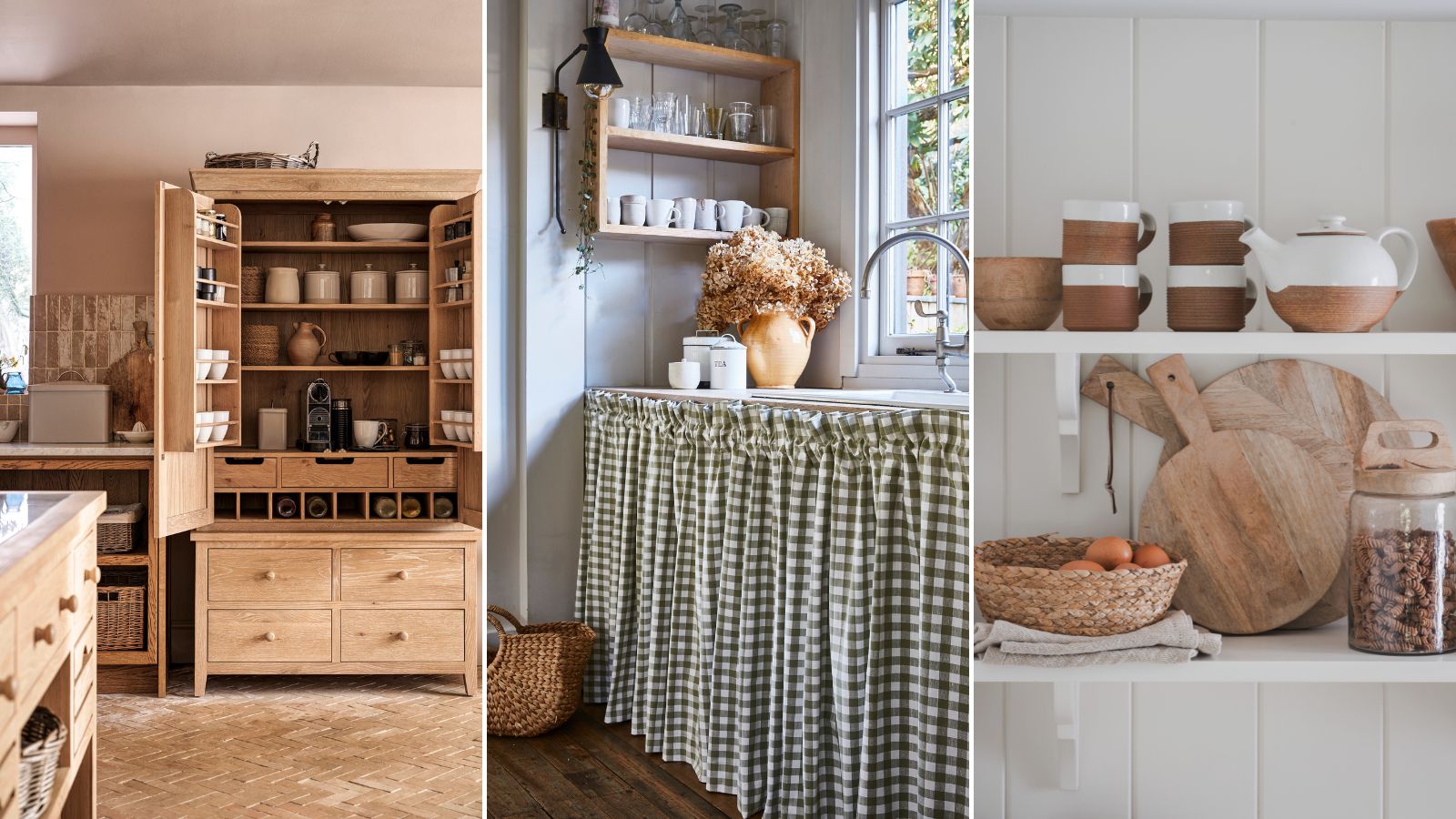

When we pick an aesthetic for our kitchens, our focus is usually on the cabinets, paint, and small accents – but what about our storage?
When following the cottagecore trend in your kitchen, you might pick out soft color schemes, natural materials, and plenty of soft furnishings with plaids reminiscent of days picnicking in flower fields. However, leave the storage to an afterthought, and your perfect scheme will likely be disrupted by hash plastics and metals that throw it off balance.
This is how to organize a cottagecore kitchen with your theme in mind, according to expert home organizers.
How to organize a cottagecore kitchen
Your kitchen storage ideas should be practical above all else, but that doesn't mean that it has to look ugly. These top five picks are ideal for keeping that cottagecore allure alive.
1. Combine open and closed storage
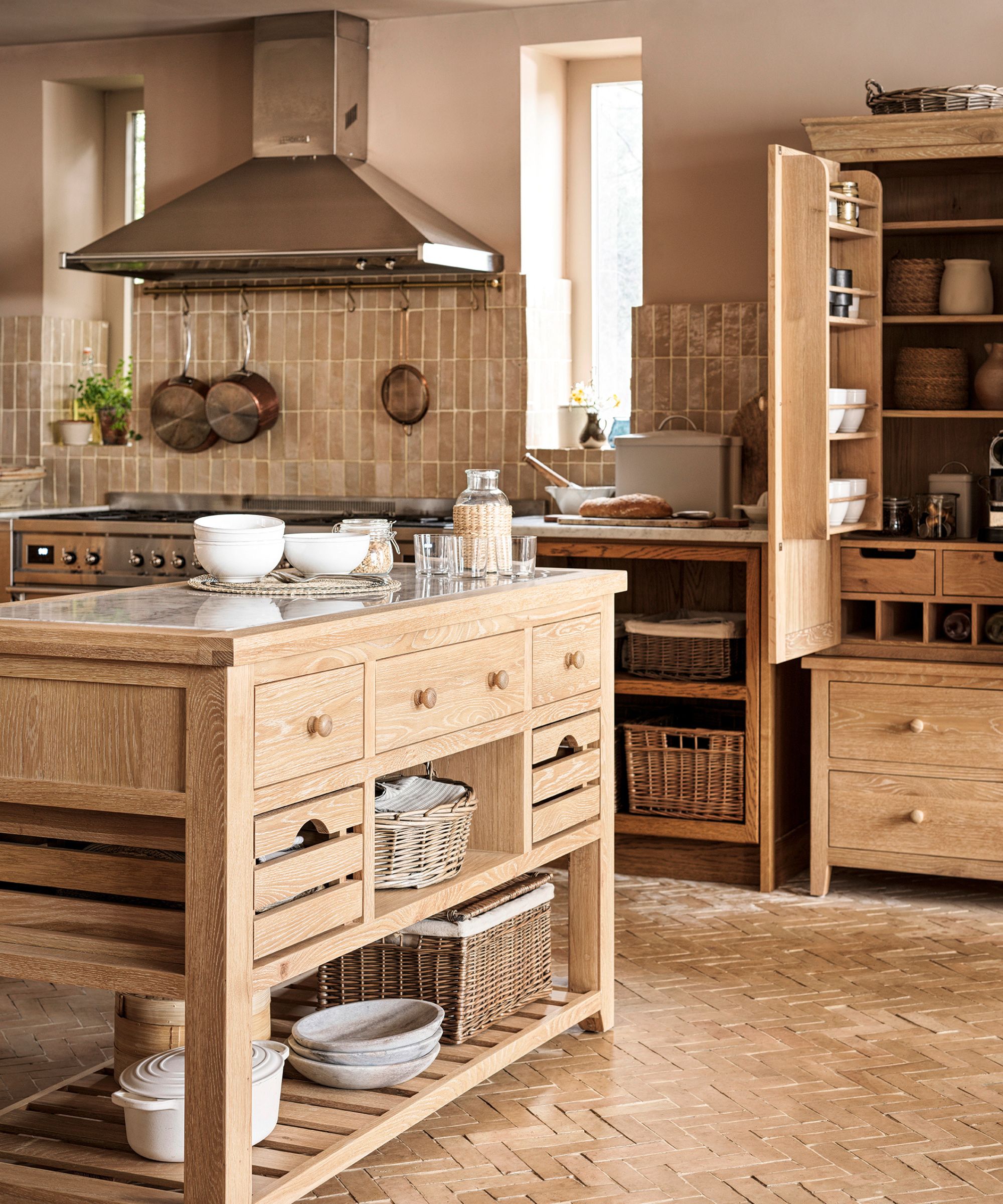
One of the defining traits of cottagecore is the collections of knickknacks and well-loved pieces kept on display, giving the room the feeling that it has been lived in and well-loved. To keep your kitchen functional while sticking to this aesthetic Elizabeth Lulu Miranda, professional organizer and owner of Mercury Organizing, recommends mixing traditional closed storage with open kitchen shelving:
‘Create exposed upper cabinets without doors or add glass door cabinets to feature your favorite decorative glassware and plates, or install plate rails, and rustic and decorative wooden shelves to keep near the stove for easy access to cooking oils and spices. You could even hang cups on hooks and place saucers on a wooden wall shelf.’
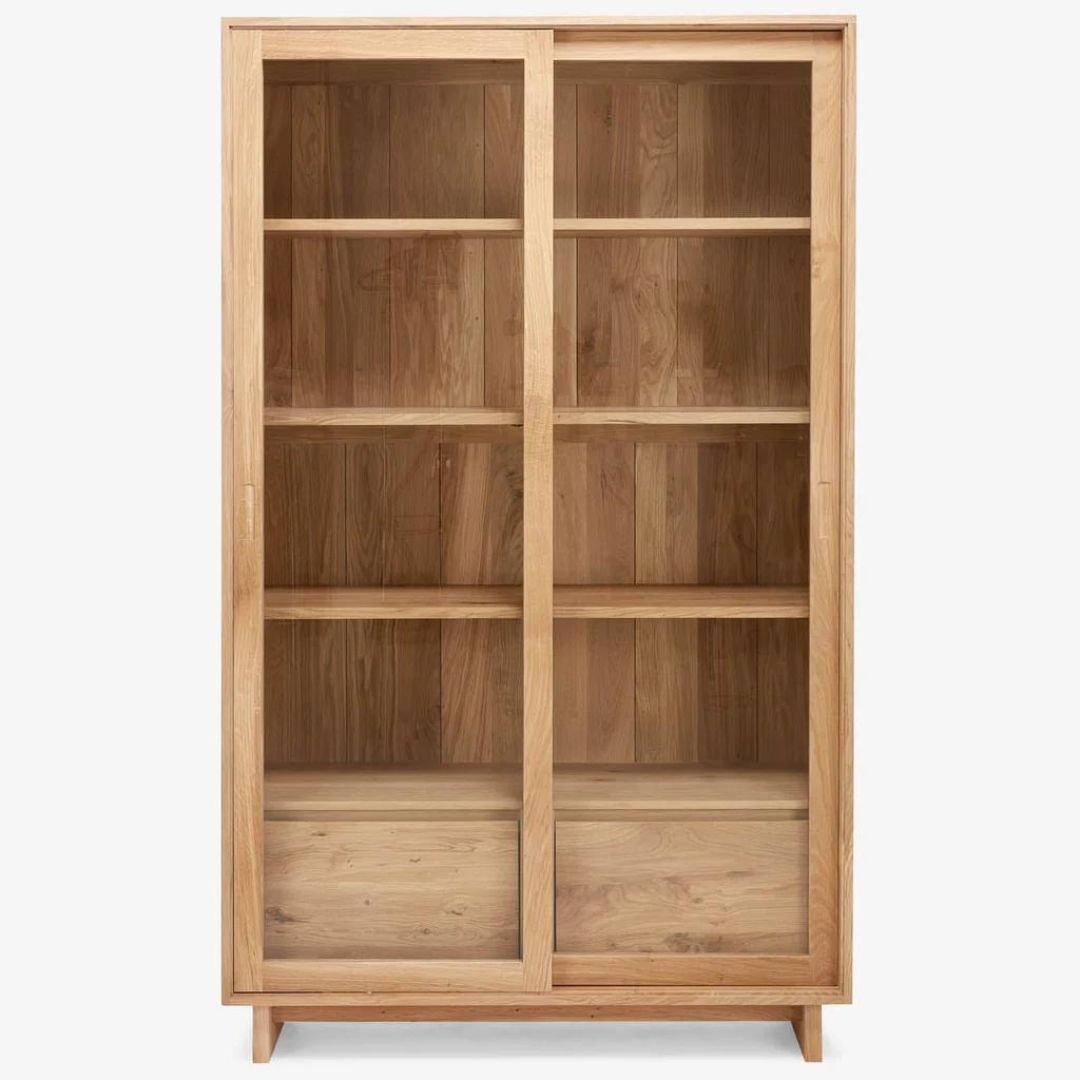
If you need additional kitchen storage, this open storage unit is perfect as a stand alone pantry in a cottagecore kitchen
2. Choose storage materials that match the aesthetic
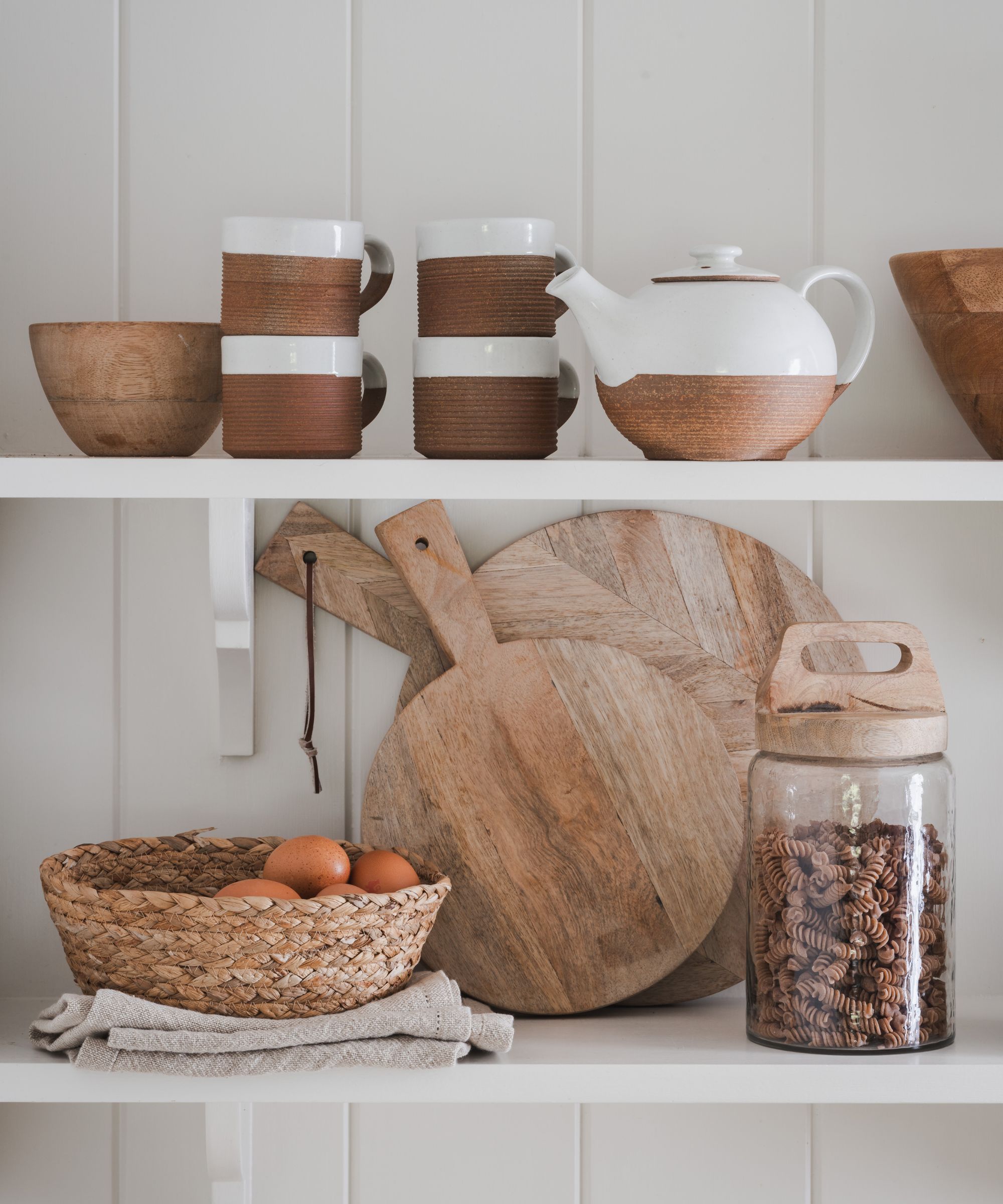
The types of kitchen organizers you pick can make or break the overall feel of your cook space. Cold gray plastic containers will stand out in an otherwise old-world kitchen, for instance – and not for the right reasons.
As such, it can be helpful to select storage baskets and jars made with natural materials in warm-toned woods, continues Elizabeth Lulu Miranda, professional organizer:
‘Highlight your favorite vintage pieces by choosing appropriate storage for a cottagecore kitchen,’ she begins. ‘Use wooden crates, canisters, bins, ceramic jars, and old tins to enhance the cottagecore charm – these will serve well as functional storage pieces containing small items you need in a kitchen. Large ceramic jars or large glass ball jars are also perfect for holding foods like grains, dried herbs, dried fruit, and nuts.’
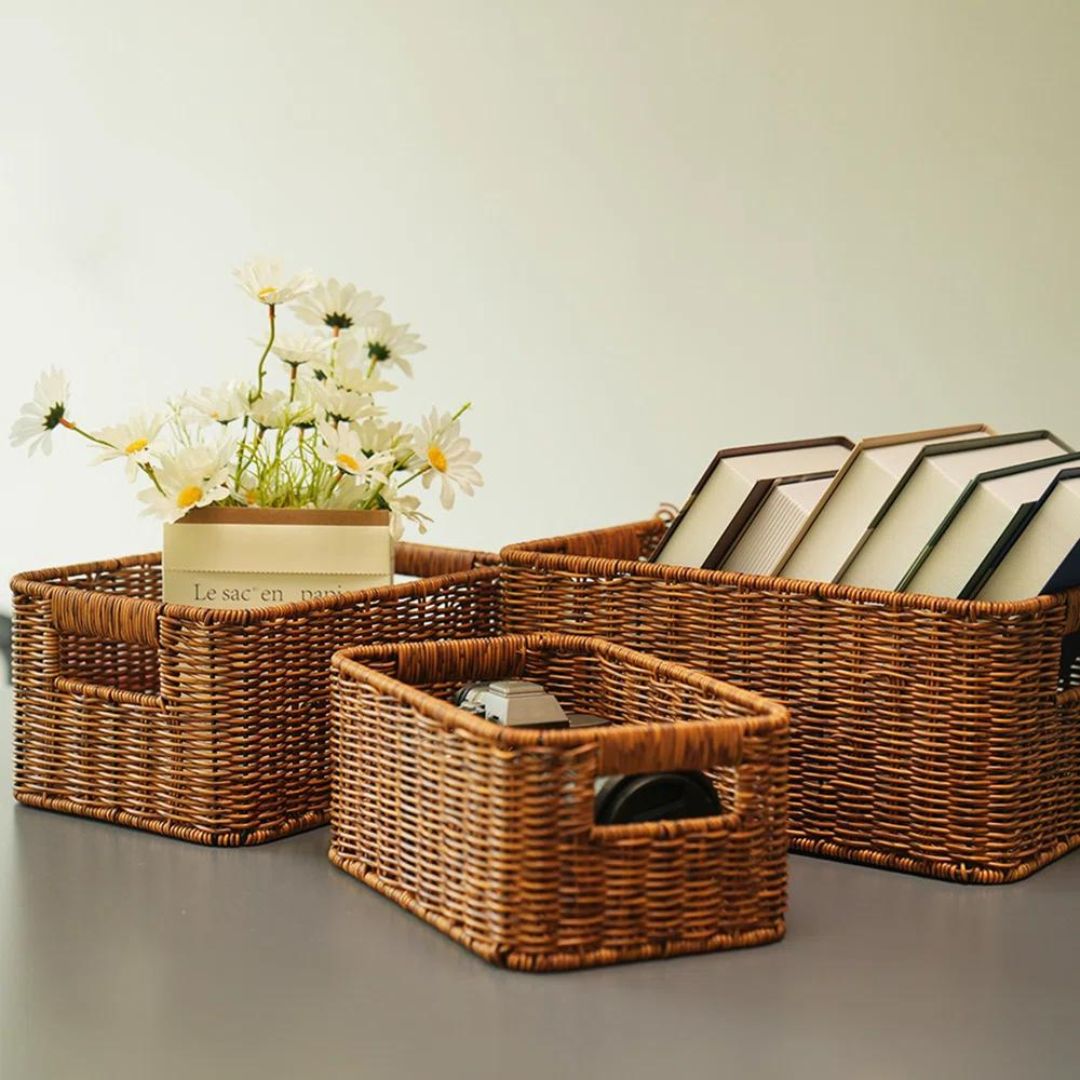
These handwoven rattan storage baskets are ideal for organizing pantries or shelving with sturdy handles, making them ideal for moving around as you cook
3. Recycle containers
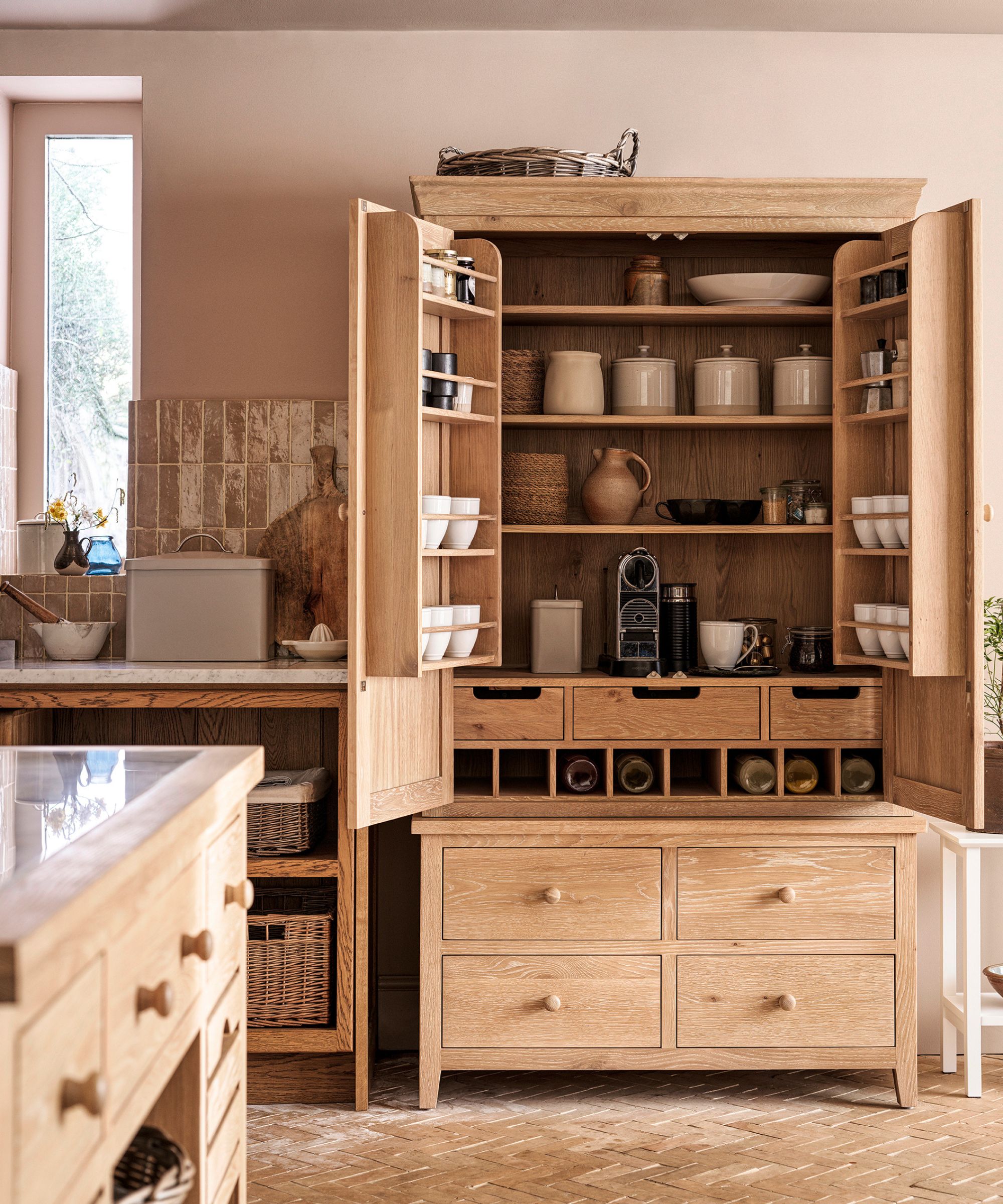
The cottagecore aesthetic and slow living go hand in hand, so it only makes sense that you look to be more sustainable at home when organizing your kitchen, suggests Amélie Saint-Jaques, expert organizer and Kon-Mari consultant, owner of Amélie organizes. Recycling old containers is a great way to add a little extra character to your kitchen while also organizing without spending any money – just ensure you are only keeping containers that you will use and will be practical, Amélie reminds us, and avoid being tempted into keeping a pretty jar and letting it collect dust.
4. Swap cabinet doors for curtains
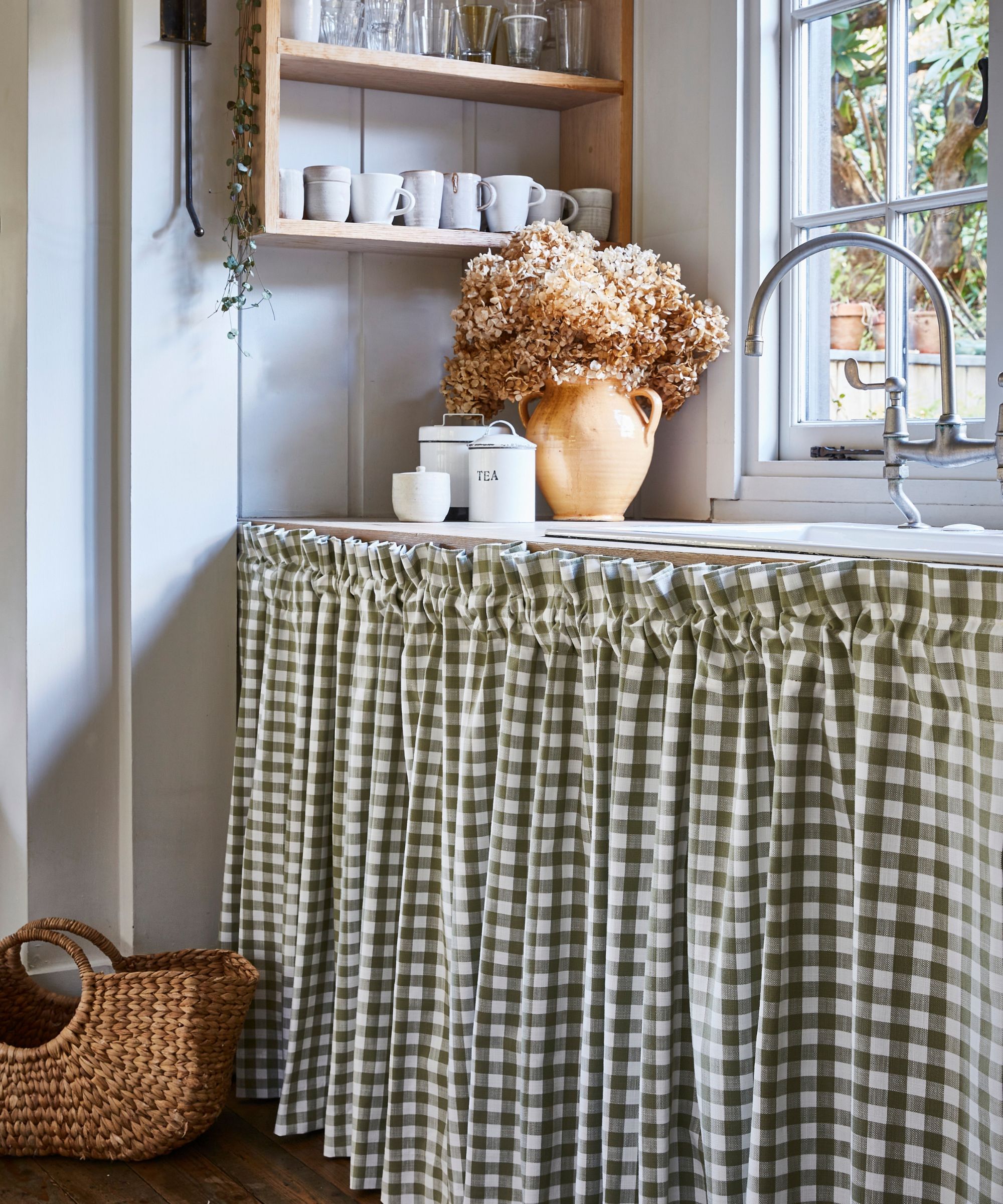
Replacing doors with curtains has become a bit of a trend as of late, but it is a timeless staple of a cottagecore style kitchen suggests Amélie Saint-Jaques, home organizer:
‘You can also consider curtains on tension rods underneath the kitchen counter, especially underneath the kitchen sink, as they hide unsightly pipes and cleaners while still allowing everything to remain accessible.’
5. Avoid clutter
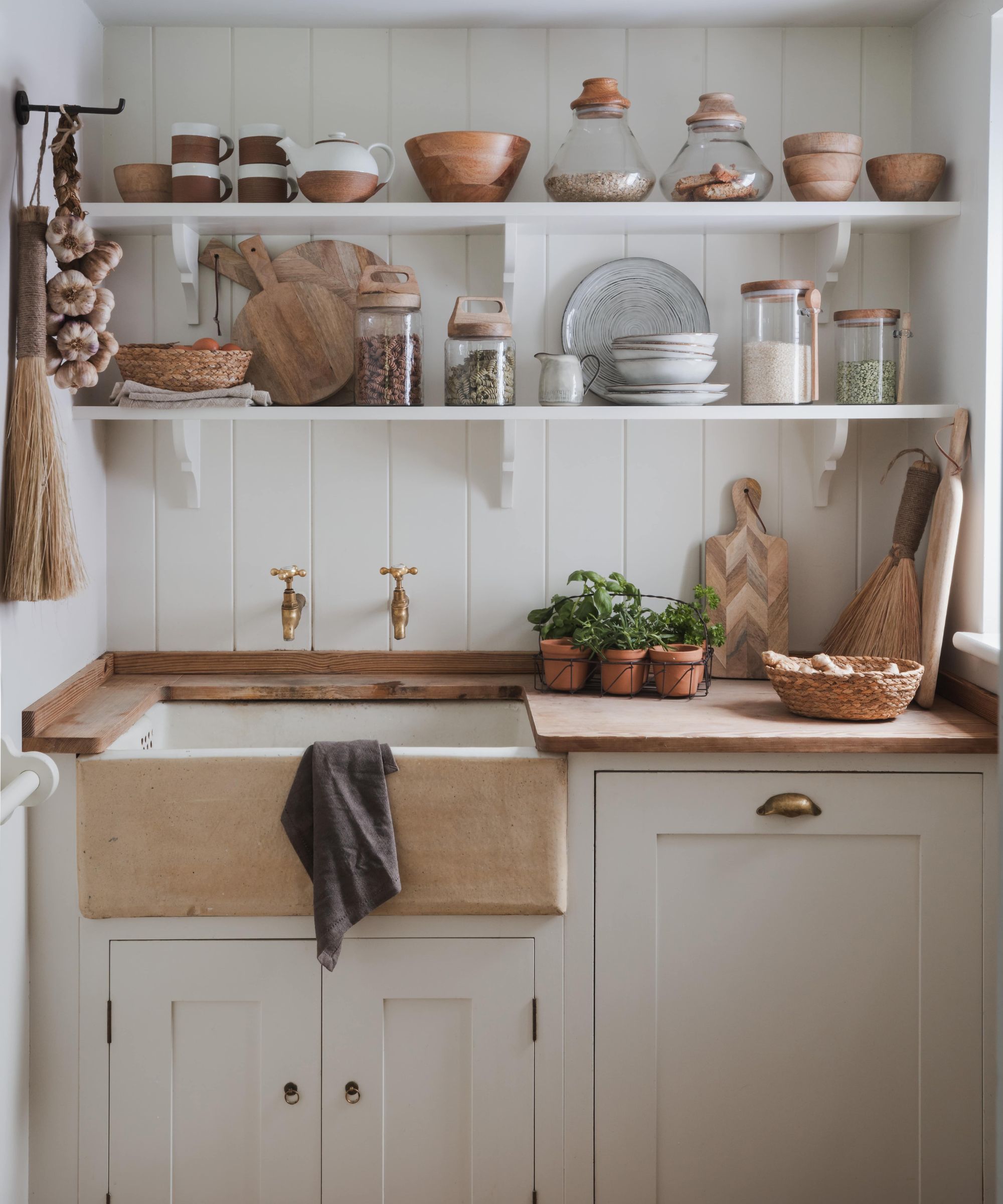
Just because cottagecore emphasizes curating beautiful collections of well-loved items doesn't mean you should be cluttering up your worksurfaces, reminds Audra George, professional organizer and owner of Pretty Neat: An Organizational Solution, Oklahoma. You must continue to follow the golden rules for a clutter-free kitchen. She recommends decluttering and storing most items and leaving only the essentials on the countertops in sight.
‘You can use your open cabinets or shelving to display some vintage dishes, cast iron, old cookbooks, and things that have more of a retro feel to help with the overall look and cottage core feel,’ Audra adds.
FAQs
What are the best cottage kitchen cabinets?
If you want to give your kitchen a cottage makeover, picking out more traditional cabinet fronts is a great place to start. Shaker kitchen cabinets or inlaid kitchen cabinets, for instance, give an old-world charm reminiscent of a traditional cottage. For a whimsical touch, you can also consider replacing some cabinet doors or even a whole pantry door with a curtain in a cottage-like fabric instead, such as a gingham or light cotton, for the fairytale look.
What is the difference between a cottage kitchen and a farmhouse kitchen?
Although the two styles both have a similar charm, a cottagecore kitchen evokes a more simple approach to life and a connection to nature. It can also be more whimsical with a mismatch of furniture, colors, and decor giving a sense that the space has been collated over time – making it popular among slow-living advocates.
A farmhouse kitchen, on the other hand, tends to lean into cleaner lines and more neutral schemes. It still has a lived-in look with some distressed furniture and accents but doesn't place as much emphasis on old-world charm, making it a little more modern.
Sign up to the Homes & Gardens newsletter
Design expertise in your inbox – from inspiring decorating ideas and beautiful celebrity homes to practical gardening advice and shopping round-ups.

Chiana has been at Homes & Gardens for two years and is our resident 'queen' of non-toxic living. She spends most of her time producing content for the Solved section of the website, helping readers get the most out of their homes through clever decluttering, cleaning, and tidying tips. She was named one of Fixr's top home improvement journalists in 2024.
-
 Nate Berkus says slipcovered sofas are back on trend – and I just found a way to create this designer-approved laid-back look from just $86
Nate Berkus says slipcovered sofas are back on trend – and I just found a way to create this designer-approved laid-back look from just $86This classic style is making a strong comeback, but did you know you don't have to buy a whole new couch to get this Nate-approved look?
By Eleanor Richardson
-
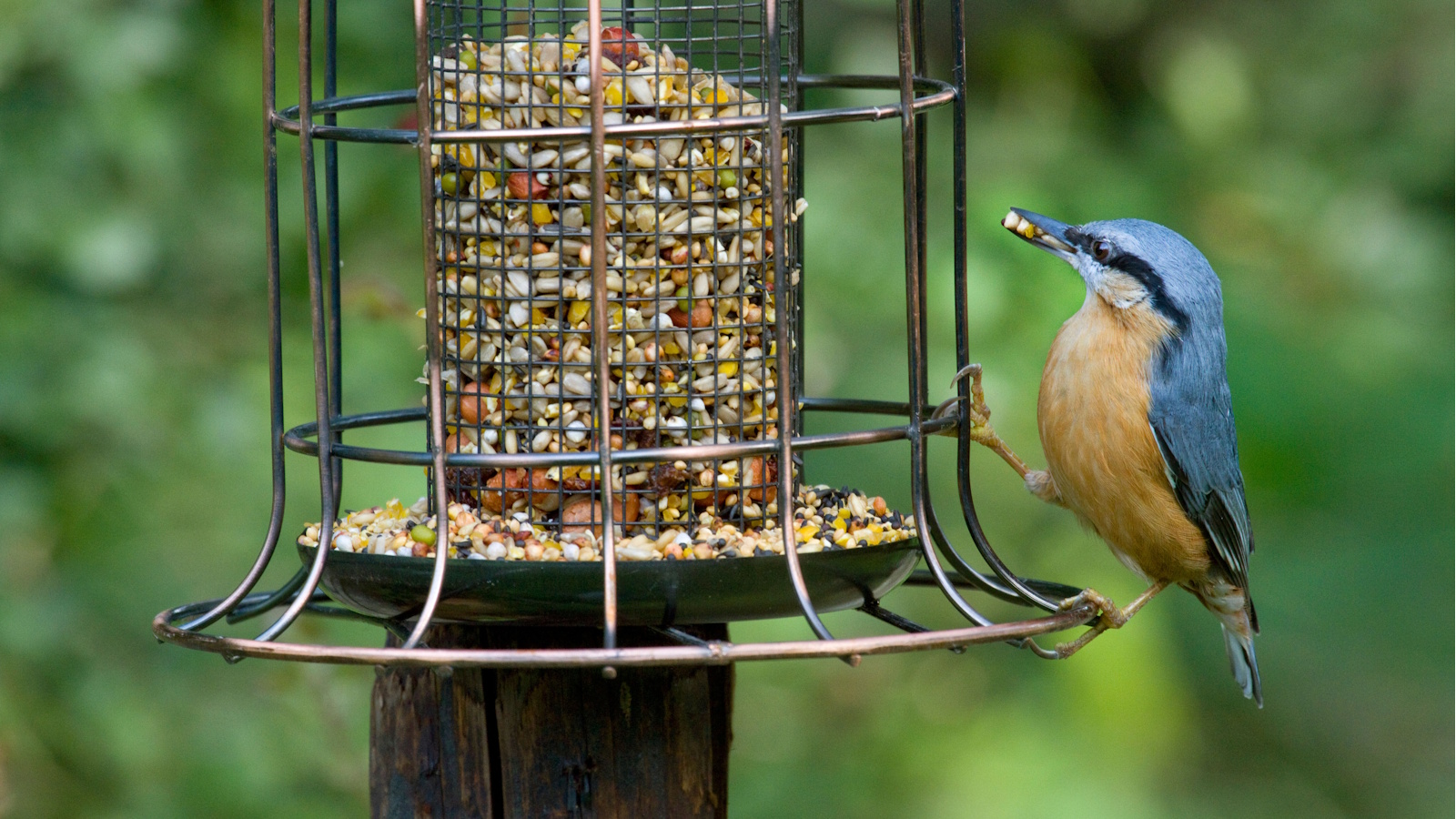 Gardeners are putting pasta in bird feeders this spring – but there is one important warning you need to know before following suit
Gardeners are putting pasta in bird feeders this spring – but there is one important warning you need to know before following suitCooked pasta can be a nutritious snack for birds, but serving it in the wrong way could cause them harm
By Tenielle Jordison
